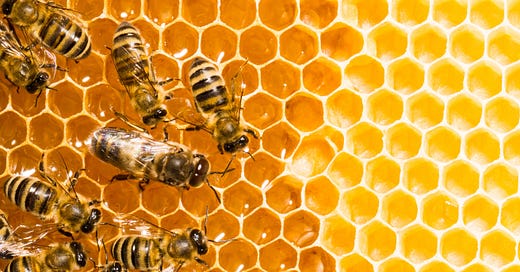
For centuries, the question of whether animals possess consciousness—the ability to experience feelings and sensations—has sparked lively philosophical and scientific debate. Charles Darwin, the revolutionary mind behind the theory of evolution, faced criticism for suggesting animals felt emotions similar to humans.
‘‘Recent advancements in animal behavior research challenge traditional views, suggesting many animals possess consciousness and complex emotions. As evidence grows, ethical considerations in animal treatment become paramount, potentially reshaping our understanding of the natural world and our relationship with the animal kingdom.’’
Traditionally, attributing human-like experiences to animals was frowned upon due to the difficulty of measuring consciousness. However, a paradigm shift is underway. Let’s take a look.
A Crack in the Door: Unveiling Animal Intelligence
Recent breakthroughs in animal behavior research are challenging the old guard. The scientific community is increasingly acknowledging the possibility of consciousness in a wider range of species, thanks to a growing body of evidence.
Cognitive Champions
Studies reveal remarkable cognitive abilities in animals beyond primates. Bees, once thought to simply follow pre-programmed routines, can actually count, recognize human faces, and even use tools to gather pollen. Octopuses, the brainiacs of the invertebrate world, display problem-solving skills and complex learning behaviors that rival some vertebrates.
The Emotional Spectrum
Animals exhibit behaviors that suggest emotional experiences. Research shows bees may alter their behavior after negative experiences, such as receiving an electric shock, and elephants demonstrate mourning rituals for deceased companions, trumpeting and gently touching the bones of their fallen kin.
Beyond Reflexes
Previously viewed as simply reacting to stimuli, some animals now show signs of planning and decision-making. Chimpanzees strategize to cooperate and obtain food, using sticks to reach termites or rocks to crack nuts. Crows, known for their intelligence, use tools like sticks to extract grubs from logs and even bend straight wires into hooks to access food in containers.
The New York Declaration: A Seismic Shift
The launch of the "New York Declaration on Animal Consciousness" in April 2024 marks a significant milestone. This declaration, signed by prominent scientists and philosophers, acknowledges the "strong scientific support" for consciousness in birds and mammals. It also highlights the "realistic possibility of conscious experience" in invertebrates, like octopuses and insects, and other animals previously not considered.
The declaration's impact goes beyond scientific recognition. It emphasizes the need to consider animal welfare in research and decision-making processes. As we gain a better understanding of the inner world of animals, ethical considerations regarding their treatment become paramount.
Challenges and the Road Ahead
Defining and measuring consciousness objectively remain hurdles. Currently, scientists rely on behavioral observations and indirect methods, making it difficult to definitively prove consciousness in another being. However, the growing body of evidence and the increasing willingness to explore the question are paving the way for further breakthroughs. Neuroscience research delving into brain structures and functionalities, coupled with the development of new methodologies for studying animal behavior, may provide deeper insights into the minds of animals.
A Future of Respect and Understanding
The exploration of animal consciousness is no longer a fringe topic. It's a field brimming with potential, with implications for our relationship with the animal kingdom. As research progresses, we may discover a spectrum of consciousness, varying across species, challenging the traditional human-centric view. This newfound understanding can guide us towards more ethical interactions with animals, fostering a future where we acknowledge and respect their sentience.
Perhaps, one day, we'll be able to truly peek into the enigmatic inner world of animals and understand their subjective experiences. This journey of discovery promises to reshape our understanding of the natural world and our place within it.
Sources:
Bees can count from left to right. The Guardian
Bees can remember human faces. TED Ideas
Honeybees use tools to gather pollen. National Geographic
The mind of an octopus. Scientific American
Bees may feel pain. Science
Elephants demonstrate mourning rituals. YouTube
Chimpanzee cooperation and tool use. Britannica
Crows use tools. YouTube
Visit Our Amazon Store!
Notice: As an Amazon Associate, we earn a commission from qualifying purchases that help promote animal rights worldwide!
General Resources
Books:
Dominion: The Power of Animals in Nature and in Our Imagination by Matthew Scully
Animal Liberation by Peter Singer
Eating Animals by Jonathan Safran Foer
A Billion Hungry Mouths: Feeding the World Without Consuming the Planet by Colin Tudge
Websites and organizations:
Documentaries:
Articles:
"The Case for Animal Rights" by Tom Regan
‘‘Why We Love Dogs, Eat Pigs, and Wear Cows: An Introduction to Carnism’’ by Melanie Joy
‘‘Animal Rights: The Abolitionist Approach’’ by Gary L. Francione
‘‘Fellow Creatures: Our Obligations to the Other Animals’’ by Christine Korsgaard
Seeds of Compassion: Finding Jesus Christ in a Vegan World by Michael Corthell
Receive a single informative article daily at 12:01 AM by email. Explore my homepage with exciting vegan and plant-based news content and delightful and delicious recipes for additional updates. Stay connected to the vegan world and all it has to offer.
Visit The Vegan Project Global our Facebook page for more vegan outreach and education.
Also, visit our new YouTube channel
The information on this vegan/plant-based blog is for general informational purposes only. It is not intended as legal, medical, or professional advice. Readers should consult with appropriate professionals for specific advice tailored to their situation. The blog owner is not responsible for any reliance on the information herein.




